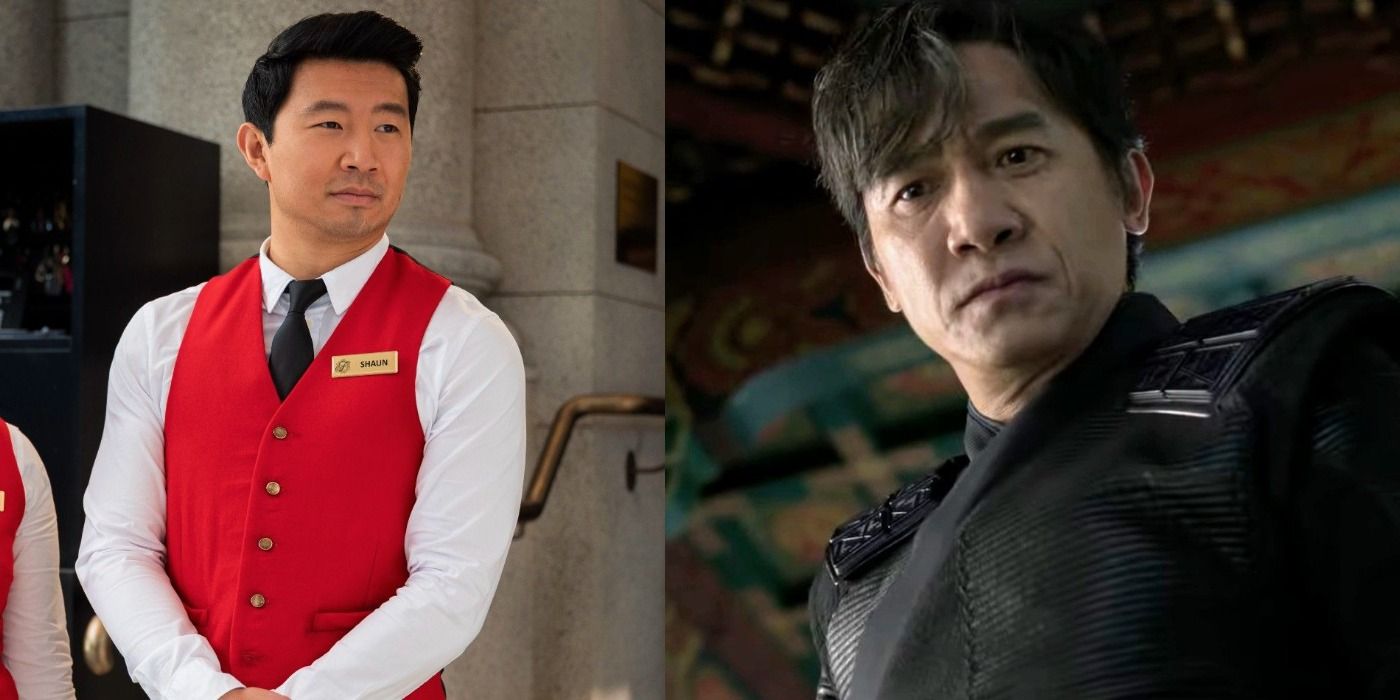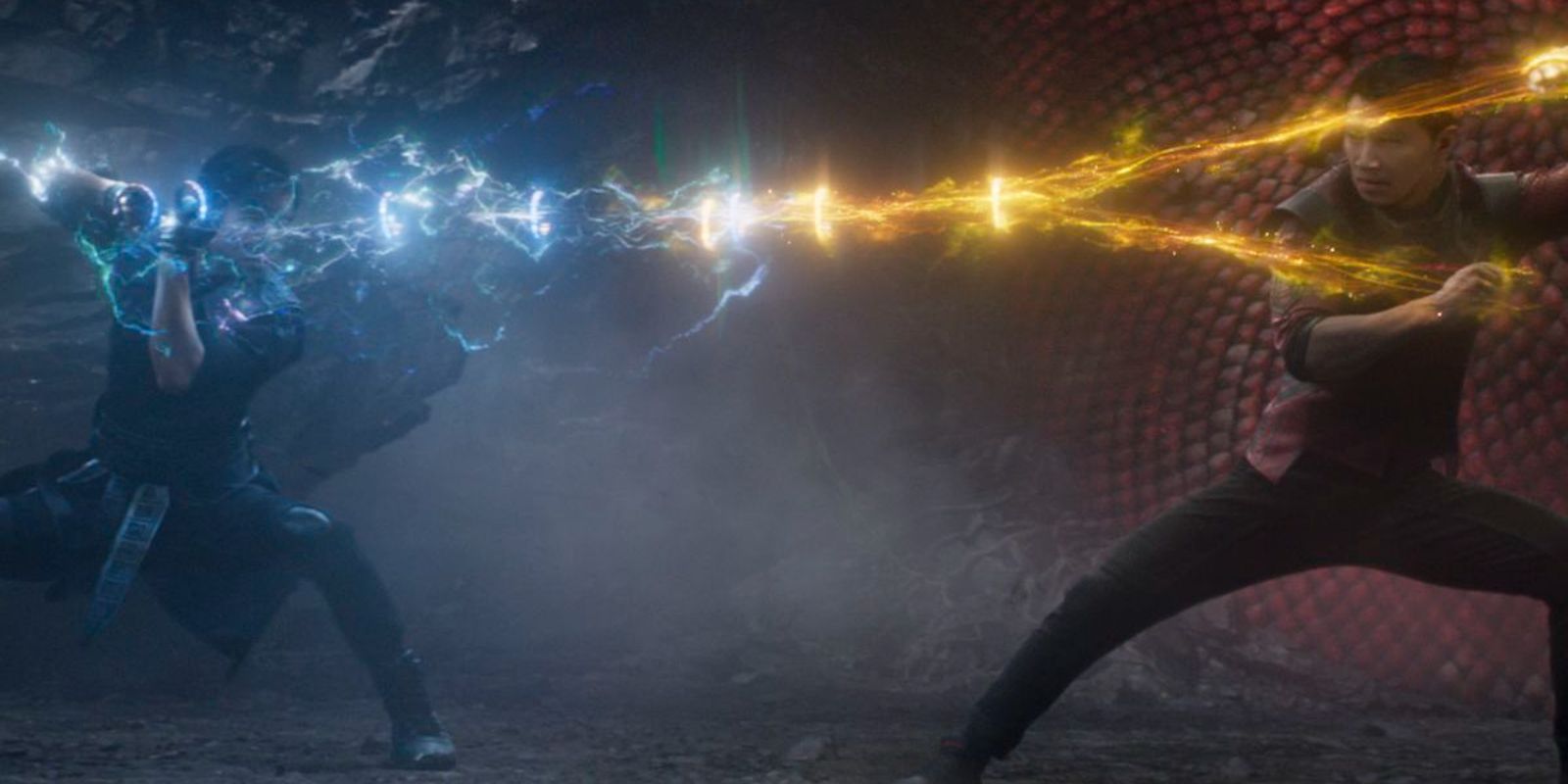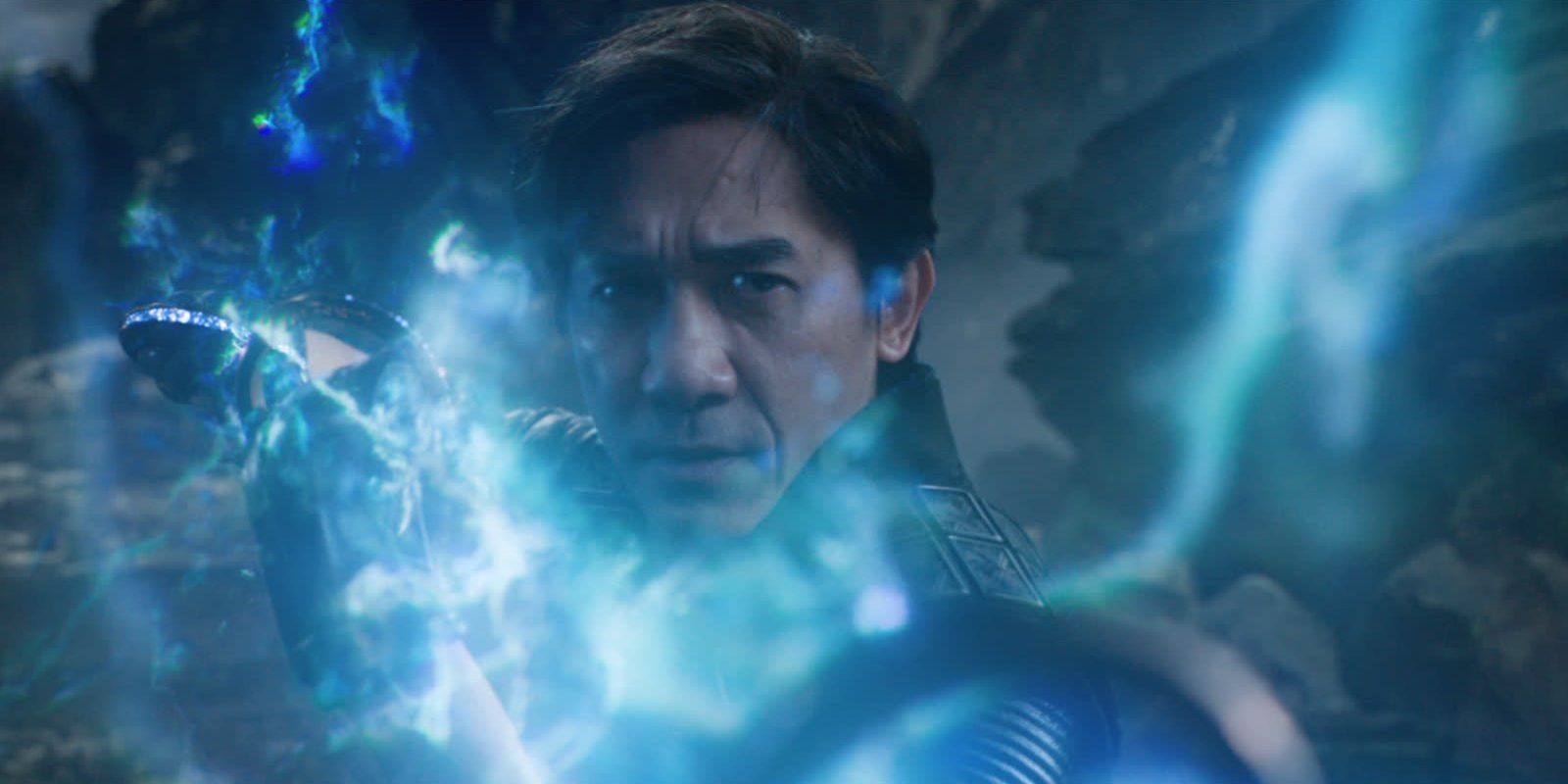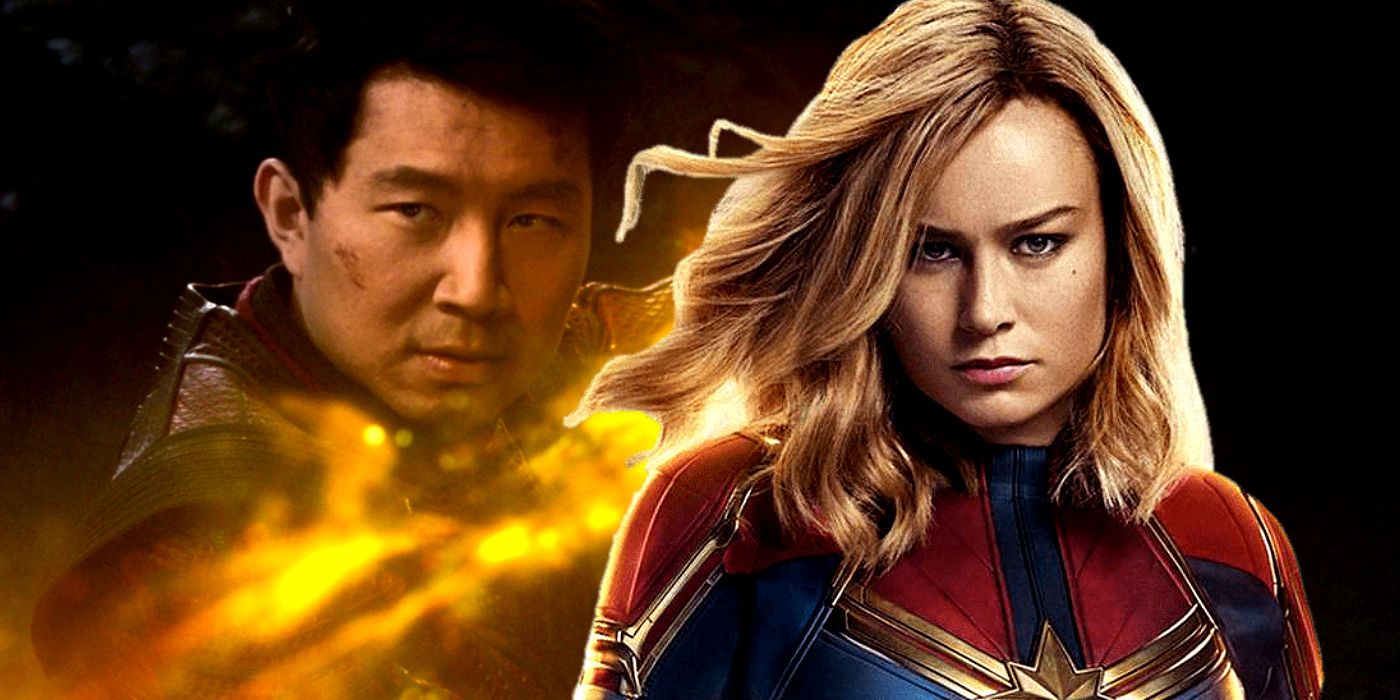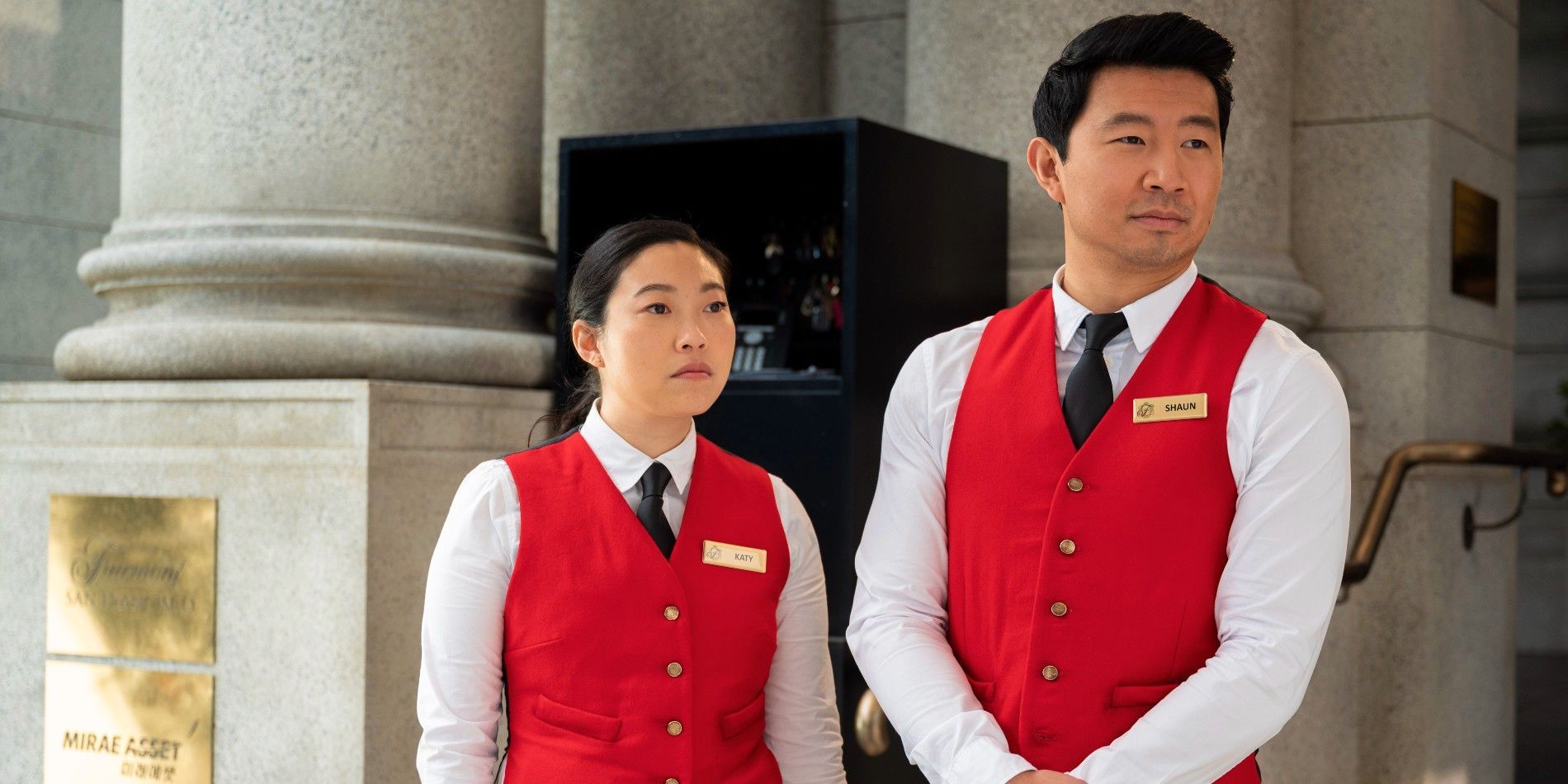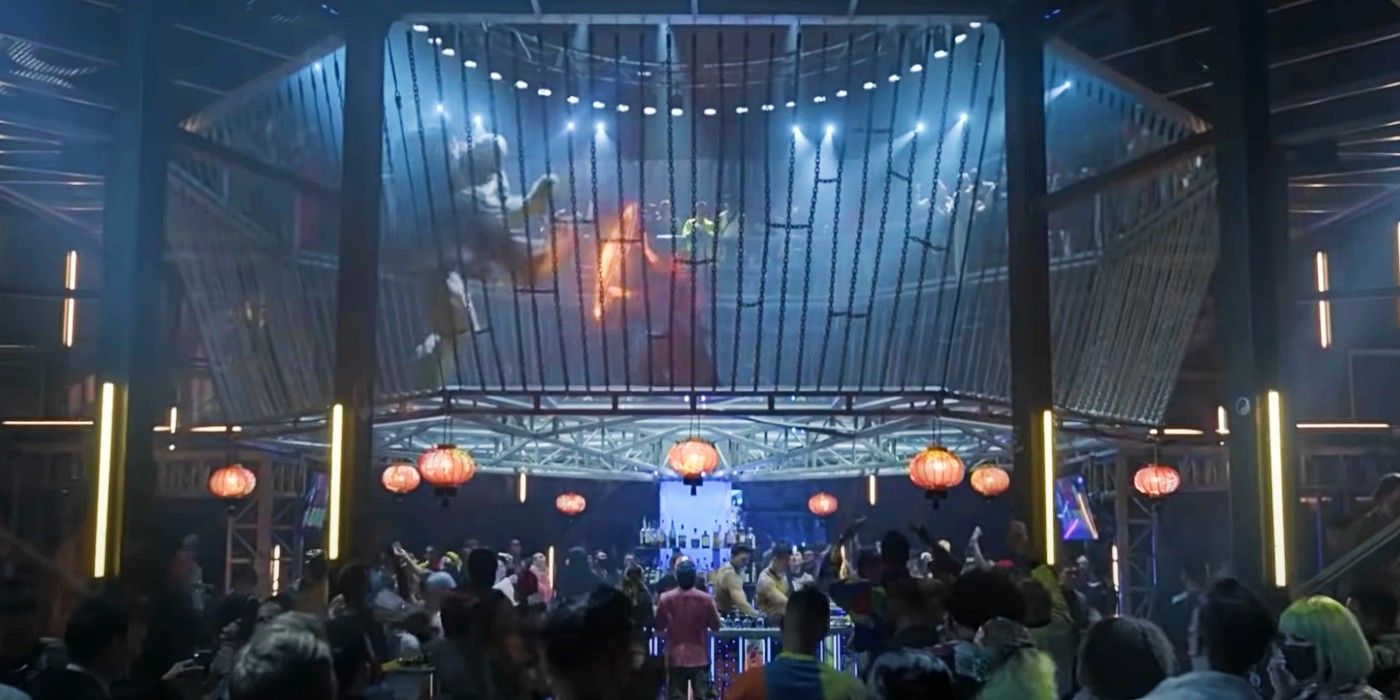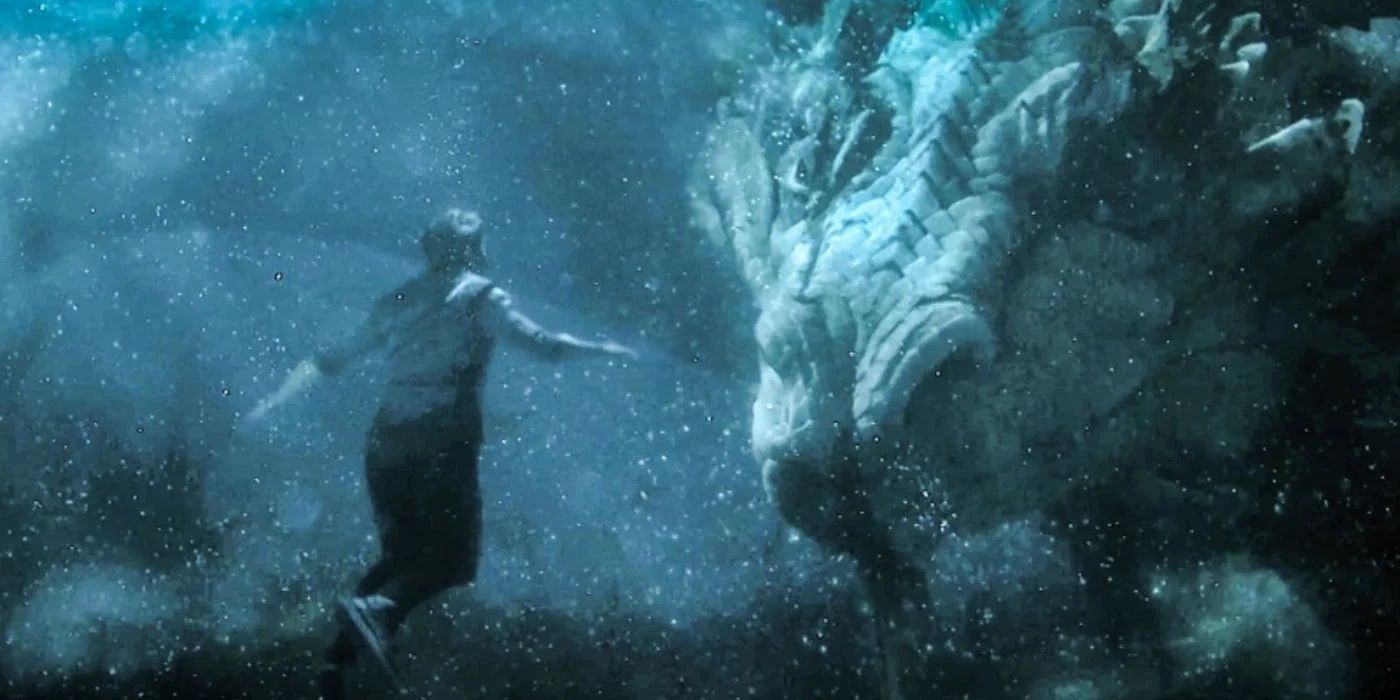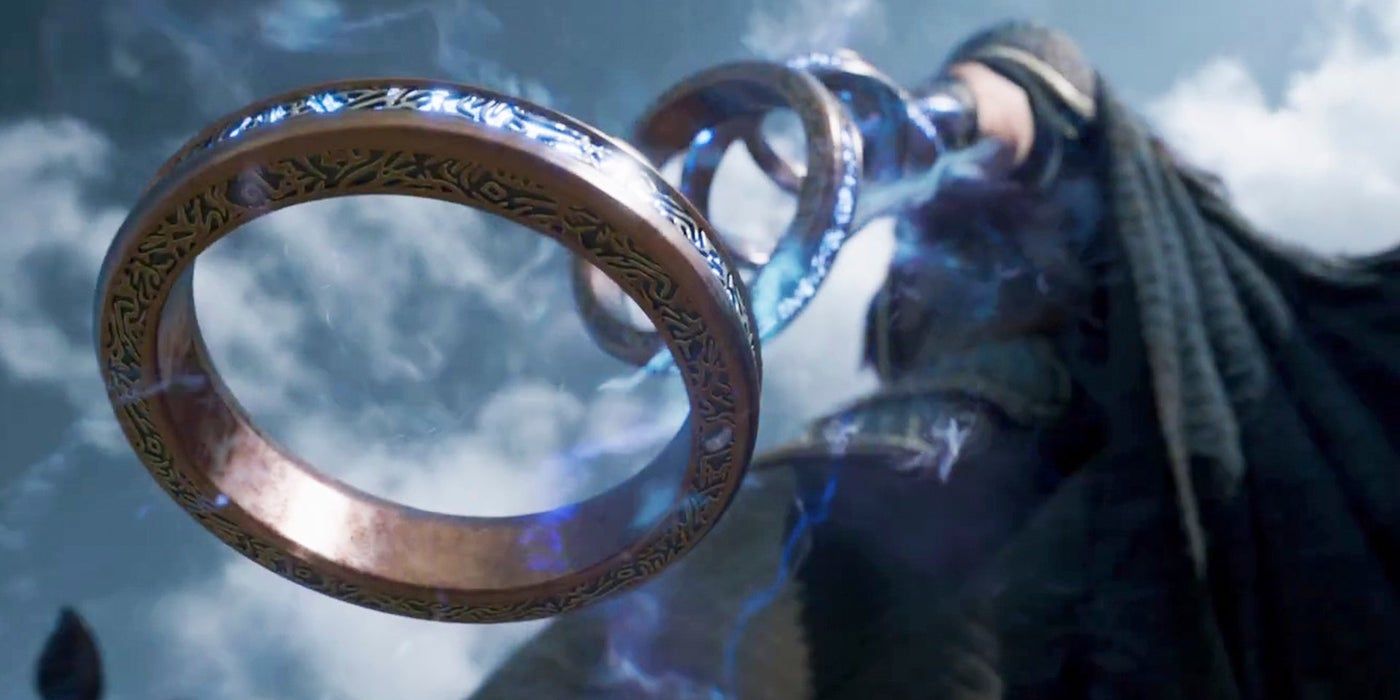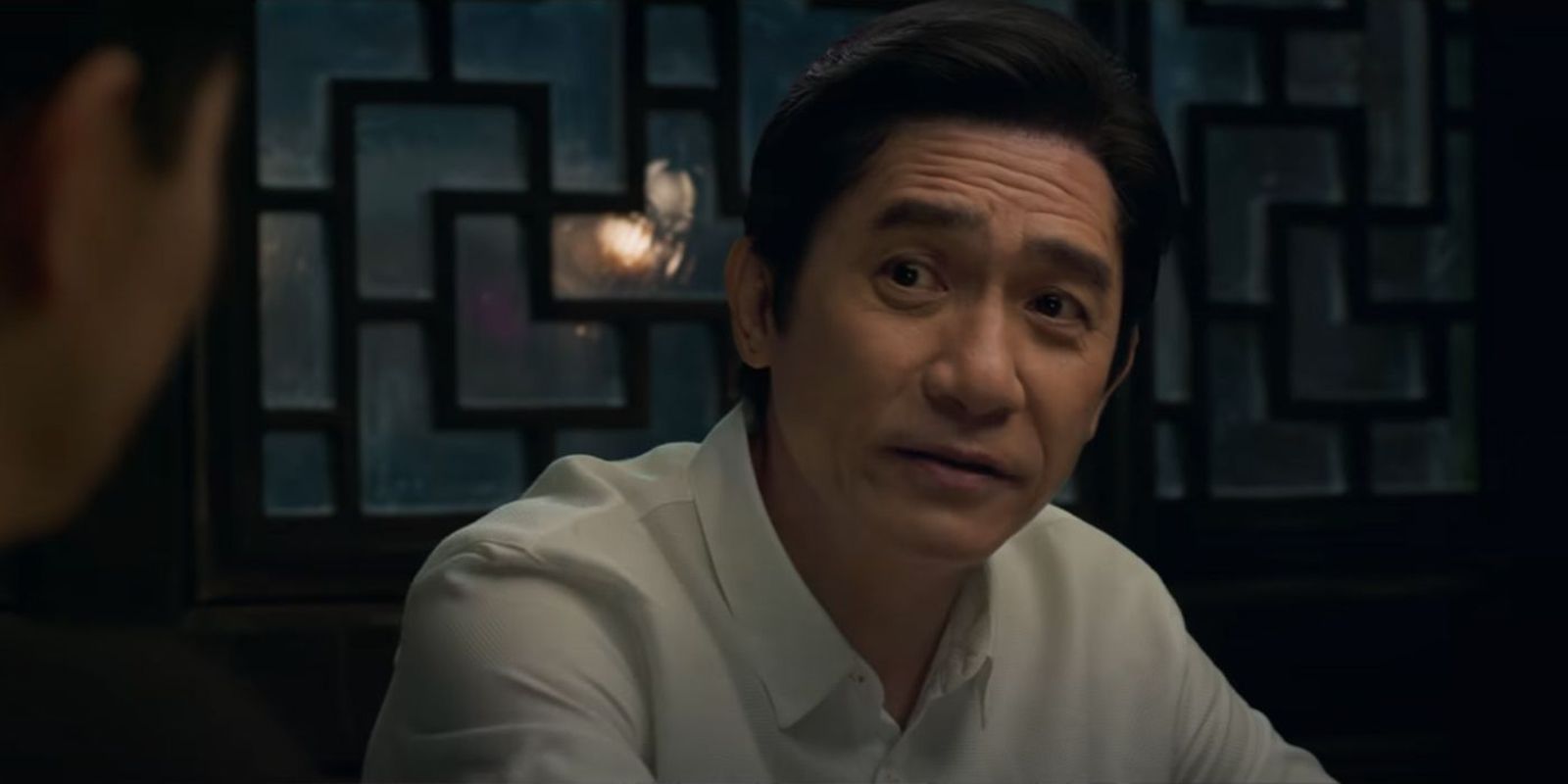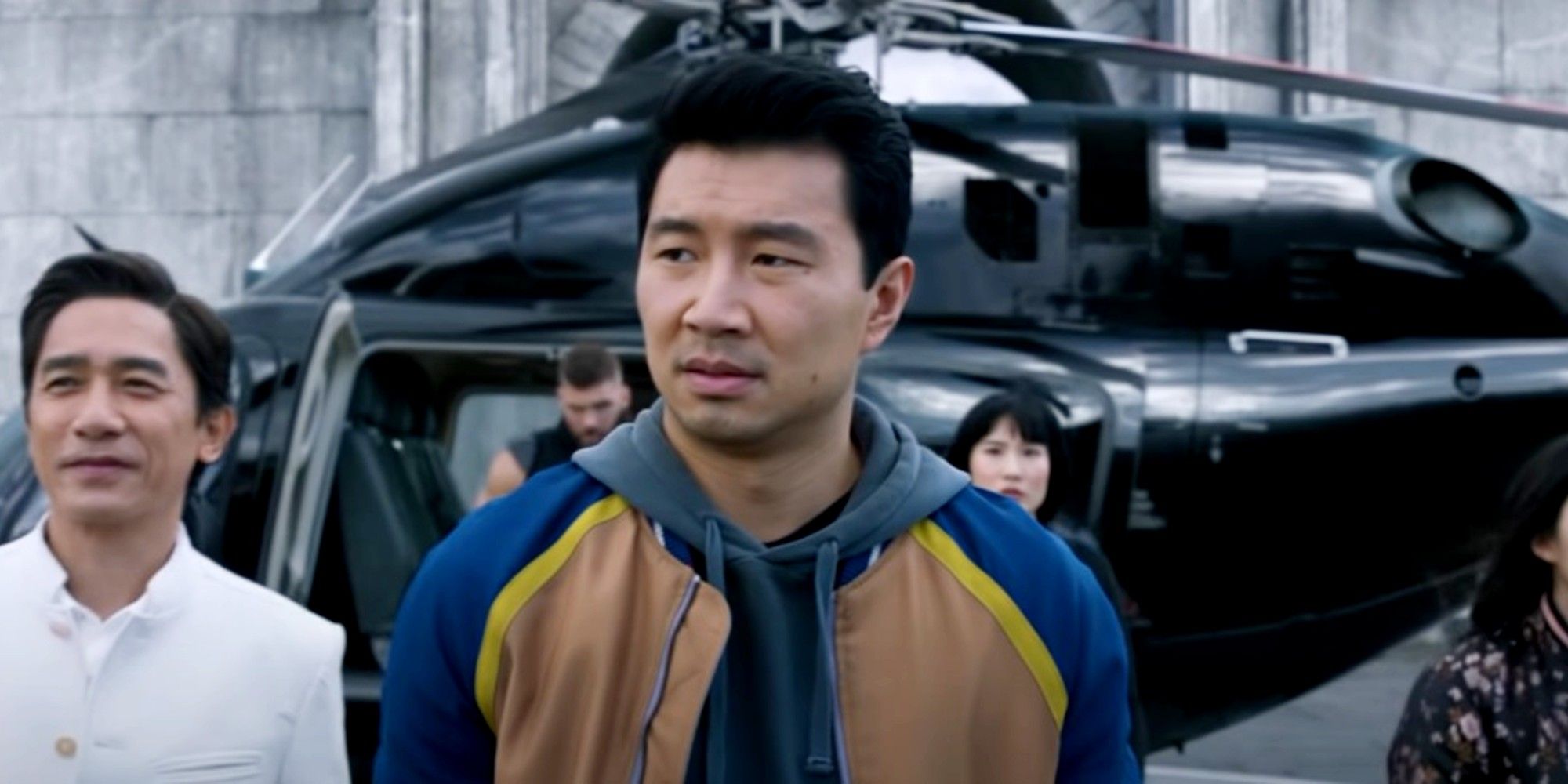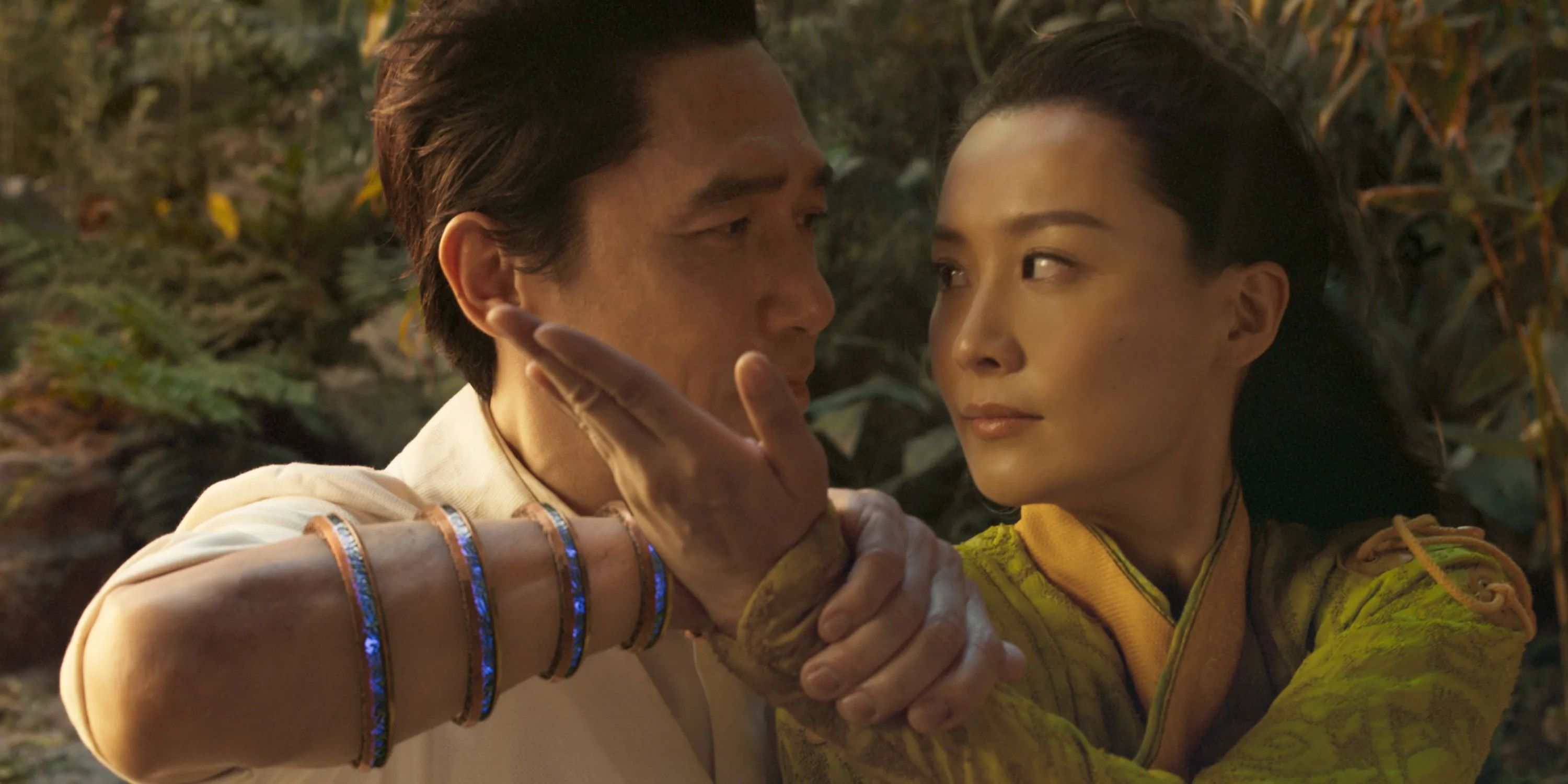The Marvel Cinematic Universe has landed another winner with Shang-Chi and the Legend of the Ten Rings. With commercial success and good reviews overall, the movie starring Simu Liu in the title role has found a large fanbase worldwide. For all its strengths though, Shang-Chi does rely heavily on the MCU’s tried-and-tested formula.
This brings with it plenty of mistakes the series keeps making, which can be found in every movie from Iron Man to Black Panther. Even the story of Shang-Chi’s protection of the village of Ta Lo isn’t immune to these issues being repeated, and it’s worth looking into the weaker aspects of the movie to uncover the areas the MCU needs to work on.
Overloading The CGI In The Climactic Battle
The MCU had never given importance to practical effects until Shang-Chi, where the majority of the action in the first half had legitimate martial arts featured. However, the movie went back to relying on the franchise's preference for CGI-heavy scenes in its climax, which was heavily used in films like Captain Marvel and Black Panther.
The mistake here is that the decision proved to be quite jarring onscreen, as the sudden influx of special effects contrasted heavily with the first half’s authentic feel. Shang-Chi also had the opportunity to be the first MCU entry to place importance on realistic action but the final battle between the Dweller-in-Darkness and the Great Protector was a full-on CGI fight that can’t be seen as anything but a fantasy sequence.
Using Death As A Way To Redeem The Villain
Thanos, Killmonger, and even Yondu to an extent are all previous antagonistic figures who achieved redemption after their demises. It’s become rather predictable that a familial connection with protagonists will lead to either a late turn into helping the heroes or dying with dignity.
Wenwu was a combination of both these aspects, as he gave his life to provide Shang-Chi with the Ten Rings. Predictability wasn’t as much of a problem as was the fact that Wenwu’s sacrifice didn’t change that he had treated his daughter like a prisoner and forced his son to kill as a child. The story’s decision to provide him with redemption through death didn’t seem earned since Wenwu didn’t repent his earlier crimes.
Placing Too Much Emphasis On The Post-Credits Scene
The stinger featuring Captain Marvel and Bruce Banner may have set up the sequel for Shang-Chi, but it also played into the MCU’s habit of leaving big-time reveals in post-credit scenes. The mistake the series makes here is that these moments tend to steal focus from the story viewers have seen beforehand.
Shang-Chi, being a new entry and an introduction to the superhero, needed to place the most importance on the title character. By bringing in established heroes like Banner and Captain Marvel, fans will be left talking about their presence instead of appreciating Shang-Chi’s adventures over the course of the main story.
Not Clarifying The Timeline Of The Events
Phase Four has frustrated fans due to the lack of clarity over when the events take place. All of WandaVision, Loki, The Falcon and the Winter Soldier are known to happen before Spider-Man: Far From Home but it’s not clear how long.
Shang-Chi didn’t make things any better and it was never explained where its place is in the timeline. Although it seemed as if the story was set in early 2024, this clashes with Captain Marvel’s hair, which can’t have grown so long when Avengers: Endgame took place at the end of 2023.
Leaving Things Ambiguous For Potential Sequels
The entertainment value of the movie deserves full credit, but the story still left Shang-Chi with unanswered questions. It wasn’t the right decision to leave these out for sequels to answer since it’s unclear when another entry will arrive.
Things like the mystery behind Wong and Abomination’s partnership, Xialing’s unclear role in the Ten Rings, and the status of the Great Protector were all left hanging. These aspects could have easily been answered in this movie itself without leaving viewers to speculate on what they’re supposed to expect next.
Bringing Deus Ex Machina Characters In The Final Moments
A sudden entry by a powerful character is expected in MCU movies, with the likes of Surtur in Thor: Ragnarok and Captain Marvel in Avengers: Endgame serving as previous examples. It isn’t always a mistake to include these Deus ex Machina elements, but Shang-Chi left the protagonist to appear as a secondary hero when the Great Protector arrived.
It was only after the appearance of this character that Shang-Chi could take on the Dweller-in-Darkness, which ended up bumping Shang-Chi’s battle against Wenwu to a lower level of importance. It would have been better if Shang-Chi displayed his bravery by handling the threat himself, as a sudden and powerful ally made him appear immaterial to an extent.
Using A MacGuffin To Drive The Plot
Just about every movie in the series has a MacGuffin that the heroes and villains vie for. This includes the Power Orb in Guardians of the Galaxy, the Infinity Stones in Avengers: Infinity War, and the E.D.I.T.H. glasses in Spider-Man: Far From Home.
The Ten Rings took on the role of the MacGuffin in Shang-Chi, with the Dweller-in-Darkness summoning Wenwu to break his containment with the rings. The problem with the MacGuffin approach is that the plot is completely tied to them, leaving the characters to be established around this rather than carving out a story for their benefit.
Turning The Promoted Villain Into The Secondary Antagonist
Fans wouldn’t have known what the Dweller-in-Darkness was supposed to be before watching Shang-Chi since The Mandarin was the one promoted as the main antagonist. Aside from a throwaway line acknowledging his status as The Mandarin, Wenwu didn’t go too far into it.
He was central to the conflict but all of this was a way of setting up the Dweller-in-Darkness, who killed Wenwu to be revealed as the true villain. The mistake here is that viewers were unprepared for the real antagonist and wouldn’t have connected with him as much as they did with Wenwu. Ironically, the same issue was in Iron Man 3, where The Mandarin turned out to be a fake in favor of Aldrich Killian.
Interjecting Comedy In Serious Moments
The MCU formula includes a heavy dose of comedy and Shang-Chi features very funny characters. The mistake made was the timing of the jokes in moments where it wasn’t needed. The series frequently brings this technique forward and it usually interrupts the intensity of the scenes.
Shang-Chi had obvious examples of this, like the titular character’s reveal to Katy about the guilt of abandoning his sister on the plane, only to be interrupted by a flight attendant just when the story became emotional. Although these types of scenes do achieve in delivering laughs they also undermine the heaviness of the characters’ grief.
Death Of A Character Enhancing Another's Motivations
Star-Lord ruined things for the heroes after Gamora’s death in Avengers: Endgame, while Steve Rogers was motivated to not sign the Sokovia Accords after Peggy Carter’s passing in Captain America: Civil War. Wenwu’s motivations in Shang-Chi were to resurrect his deceased wife, ultimately being blinded from the truth of the Dweller-in-Darkness’ corruption.
The problem with placing death as a motivator is that it ties the deceased character’s value mainly to their passing rather than who they were. Ying Li was shown to be powerful enough to defeat Wenwu and become a loving mother, yet her most memorable aspect is likely to be her death since it drove Wenwu and the plot.

